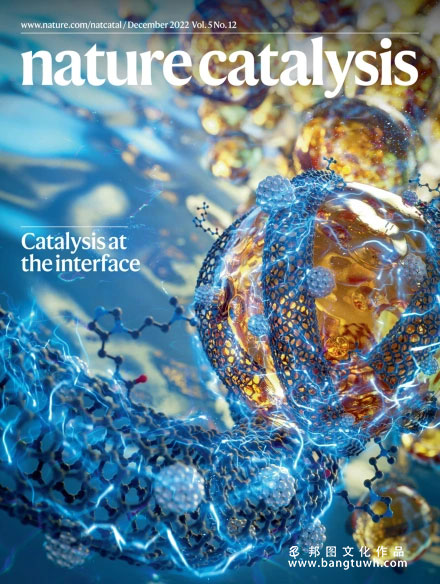科研绘图sci画图作图学术杂志封面设计toc示意图文章配图医学动画





electrocatalytic hydrogenation (ech) produces high-value chemicals from unsaturated organics using water as a hydrogen source. however, ech is limited by the low solubility of substrates when operated under aqueous conditions, by electrical losses when performed in organic electrolytes and, in general, by low faradaic efficiency and fastidious work-up. here, we show that a pickering emulsion compartmenting organic substrates and aqueous electrolytes in different phases enables efficient ech at the interface. we designed a construct comprising pd nanoparticles immobilized on positively charged carbon nanotubes that localizes at the interface to act as both emulsion stabilizer and electrocatalyst. applied to the ech of styrene, the system delivers ethylbenzene at high faradaic efficiency (95.0%) and mass specific current density (–148.1 ma mg−1pd). the system combines good substrate solubility, high conductivity and simplified product isolation, and has proved applicable to the conversion of various alkenes. this strategy may thus provide alternative solutions to the ech of substrates with low water solubility, such as bio-oil and bio-crude.



微信扫一扫,加设计师好友
17621261539
周一至周五8:30-18:00

提升“研值”

工作人员将在1个小时内联系您。


